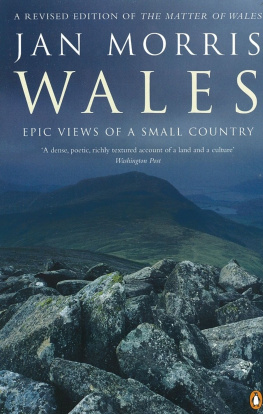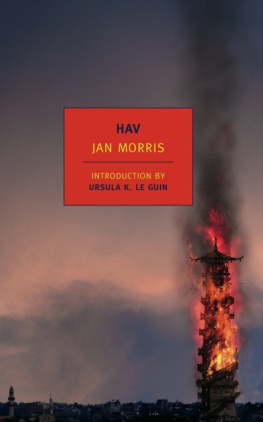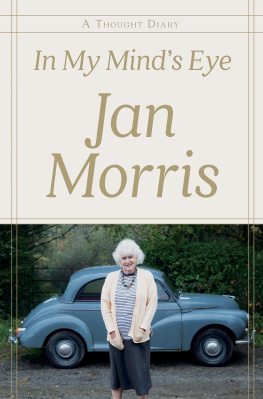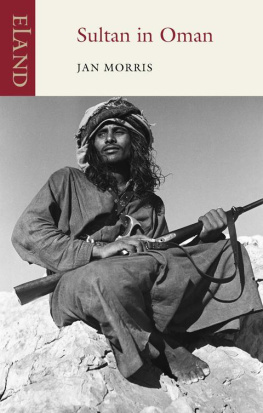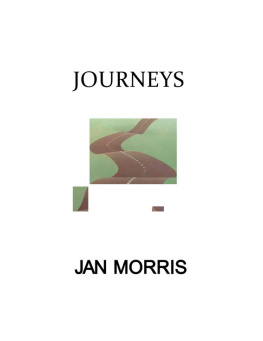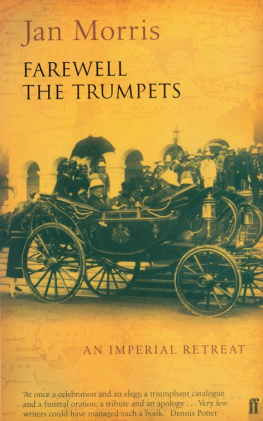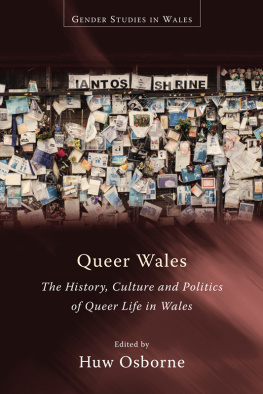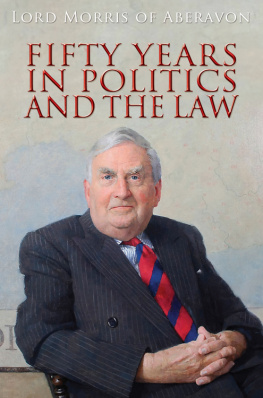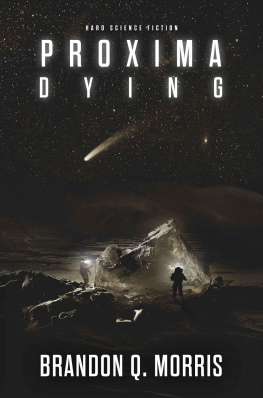Jan Morris - Wales
Here you can read online Jan Morris - Wales full text of the book (entire story) in english for free. Download pdf and epub, get meaning, cover and reviews about this ebook. year: 2013, publisher: Penguin Books Ltd, genre: Art. Description of the work, (preface) as well as reviews are available. Best literature library LitArk.com created for fans of good reading and offers a wide selection of genres:
Romance novel
Science fiction
Adventure
Detective
Science
History
Home and family
Prose
Art
Politics
Computer
Non-fiction
Religion
Business
Children
Humor
Choose a favorite category and find really read worthwhile books. Enjoy immersion in the world of imagination, feel the emotions of the characters or learn something new for yourself, make an fascinating discovery.
- Book:Wales
- Author:
- Publisher:Penguin Books Ltd
- Genre:
- Year:2013
- Rating:3 / 5
- Favourites:Add to favourites
- Your mark:
- 60
- 1
- 2
- 3
- 4
- 5
Wales: summary, description and annotation
We offer to read an annotation, description, summary or preface (depends on what the author of the book "Wales" wrote himself). If you haven't found the necessary information about the book — write in the comments, we will try to find it.
Wales — read online for free the complete book (whole text) full work
Below is the text of the book, divided by pages. System saving the place of the last page read, allows you to conveniently read the book "Wales" online for free, without having to search again every time where you left off. Put a bookmark, and you can go to the page where you finished reading at any time.
Font size:
Interval:
Bookmark:




PENGUIN BOOKS
Anglo-Welsh by birth, Welsh by loyalty, Jan Morris divides her time between her library-house in North Wales, her dacha in the Black Mountains of South Wales and travel abroad. She is an Honorary D. Litt. of the universities of Wales and Glamorgan, a Fellow of the Royal Society of Literature and an Honorary FRIBA. She was made a CBE in the 1999 Queens Birthday Honours.
Jan Morriss other books include studies of Venice, Oxford and Spain; Last Letters from Hav , a novel about an imaginary European city, which was shortlisted for the Booker Prize in 1985; and Fifty Years of Europe: An Album , a highly personal evocation of contemporary Europe. She has also written half a dozen works about the British Empire; a capricious biography of Admiral Lord Fisher, RN, Fishers Face ; six volumes of travel essays and two autobiographical volumes. She has also edited The Oxford Book of Oxford and the travel writings of Virginia Woolf. Her most recent book, which is also available in Penguin, is Lincoln: A Foreigners Quest .
Cyflwynir y llyfr hwn
gyda chariad a diolchgarwch
iw destun
This book is dedicated
with love and gratitude
to its subject
Brooded over by mist, more often than swirled about by cloud, drizzled rather than storm-swept, on the western perimeter of Europe lies the damp, demanding and obsessively interesting country called by its own people Cymru, signifying it is thought a comradeship, and known to the rest of the world, if it is known at all, as Wales. It is a small country, in many ways the archetype of a small country, but its smallness is not petty: on the contrary, it is profound, and if its frontiers were ever to be extended, or its nature somehow eased, its personality would lose stature, not gain it.
You must look hard to find Wales in an atlas, for it is a peninsula not much larger than Swaziland, rather smaller than Massachusetts, inhabited by a mere 2.9 million people. Also it is so obscurely tucked away there, in the heart of the British archipelago, that many maps fail to name it at all, and as often as not people elsewhere have never heard of it, or at best assume it to be a municipality somewhere, or a lake in Florida. Its image is habitually blurred: partly by this geographical unfamiliarity, partly by the opaque and moody climate, partly by its own somewhat obfuscatory character, which is entrammelled in a dizzy repertoire of folklore, but most of all by historical circumstance.
For though Wales is a country, it is not a State. It has a capital city, but not a Government; its own postage stamps, but not its own currency; a flag, but no embassies; an indigenous language, but not indigenous laws. All this is because, though it is surrounded on three sides by sea, on the fourth its border marches with the powerful kingdom of England, and for some 700 years it has been absorbed into the political entity of Great Britain, with its seat of power in London. The King or Queen of England is willy-nilly the sovereign of Wales, and the heir to the British throne is formally entitled Prince of Wales. Englands Government is Waless too, and that is why Cymru is marked so unobtrusively, in English, upon the smaller scale maps, and why you will not find it listed among its peers, the Guianas and the Bechuanalands, the Icelands and the Timors of the international rosters.
Yet Wales remains not only a separate nation, but a distinctly separate and often vehement idea. It lies there uneasily between England and Ireland, nurturing its individual culture, defending its own ancient and creative language, in the shadow always of its tremendous suzerain. It is an anomaly and an anachronism: like an ember glowing always at the back of an old grate, when the household has long since turned to central heating. Often hated and generally scorned by the English, the Welsh have fluctuated down the centuries from arrogance to self-doubt, from quiescence to rebellion, and today only a minority of them actively fight for their national identity, or even speak their native language. In 1997 nearly a quarter of the population was born elsewhere, mostly over the border in England; yet despite the overwhelming proximity of the English presence, a force which has affected the manners, thoughts and systems of half the world, for better or for worse Wales has not lost its Welshness.
For better or for worse, because this abstraction is certainly not to all tastes not all Welsh tastes, even. In some senses Wales may be an epitome of the small country, but it is certainly not all traditional charm and cowbells. Its activists have long believed themselves to be of a special breed, and they have some of the exhausting resilience of Afrikaners, Jews and other chosen races, seldom behaving as passive provincials, on the edge of things, but rather as campaigners in the very eye of history. The ideal Wales, Welsh patriots feel, is the ideal nation, and from the dignity of their 8,000 square miles they often talk of all that the Welsh way of life has to offer the world at large.
It is not mere braggadocio. Their history really is special, and their communal memories are as old as any on earth. Nobody knows who were the original inhabitants of Wales, the people of the Stone and Bronze Ages, but the first historically identified settlers in the country were Celts from the European continent. In the centuries before the rise of the Roman Empire the Celtic peoples dominated wide regions of Europe, in a shifting and centrifugal kind of way, from Turkey in the east to the British islands in the west. Warlike, artistic, quarrelsome, ill-organized, showy, flighty, witty, headstrong, over many generations they were subdued by the expanding Roman imperium, and mostly assimilated into the Roman civilization. Gradually they abandoned their manners, their methods, their languages, until when the Romans themselves lost their supremacy, and the various tribes of Goths, Angles, Saxons and Teutons in their turn seized the hegemony of Europe, recognizable Celtic societies survived only in the far west, in those territories of the Atlantic seaboard which are known to this day as the Celtic fringe.
And of those territories, only one emerged from the experience of Rome with its Celticity more or less intact. The Romans never reached Ireland, the westernmost Celtic territory. They did however occupy Wales, not it seems much disrupting the ancient social arrangements of the place, but introducing the Welsh people to their own well-ordered style of life and government, and to the first glimmerings of Christianity. The triple heritage that resulted, of Celticness, of Rome, of the Christian faith, the Welsh were to honour for centuries to come. Among all the Roman possessions of the western Empire, only Wales was never overrun by its heathen successors, and Welsh literature was the first in all Europe to emerge from the debacle. England fell to the Angles, the Saxons, the Jutes and the Franks: Wales never did, and the Welsh accordingly came to see themselves as inheritors of Roman urbanity and Christian devotion, and as trustees of a lost Celtic civilization which was to become ever more marvellous in the imagination, peopled by ever more heroic heroes, inspired by saintlier saints, until the very dream of it became part of the whole worlds consciousness in the legendary paragon of King Arthur. Wales was the folk-memory of Europe!
Font size:
Interval:
Bookmark:
Similar books «Wales»
Look at similar books to Wales. We have selected literature similar in name and meaning in the hope of providing readers with more options to find new, interesting, not yet read works.
Discussion, reviews of the book Wales and just readers' own opinions. Leave your comments, write what you think about the work, its meaning or the main characters. Specify what exactly you liked and what you didn't like, and why you think so.

